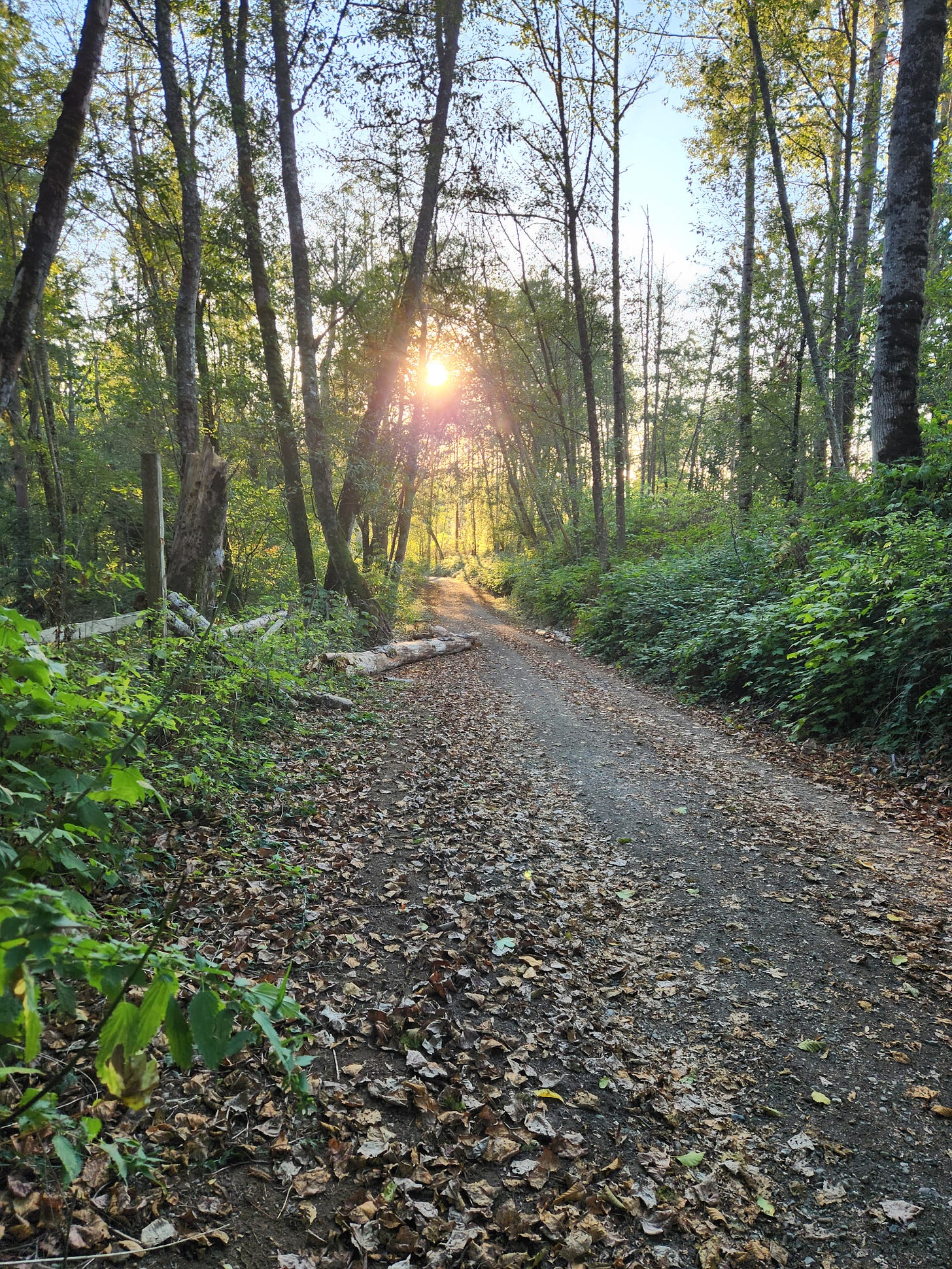Every four weeks, The Wild Card comes around for my newsletter. Sometimes, I have an idea I've been mulling for a while; sometimes, I panic. This week, with several other stories distracting me, it has felt more like a panic. Then, I remembered a book I'm struggling to finish and thought it might do me good to think about when to give up. So, this week's newsletter takes a different approach than normal; please bear with me. Read on!
On Reading Books You Dislike
I'm about to finish a book. I've been reading it, off and on, for most of 2023. It is a classic in nature writing, one of those books everyone reads and loves and recommends. When I tell people I've never read it, looks of disbelief greet me. A close friend told me this week that the book "blew my mind" when they read it decades ago.
My mind is not blown.
In part, that's because the book is about as old as I am, and its influence is felt in countless imitators. Coming across it fresh might have changed my reaction. But part of it is that I have a decidedly mixed reaction to the author. (Forgive me for not naming the author; there is no need to invite ridicule—of me—for the larger point I hope to make.) This mixed reaction is unusual for me; I tend to like writers and their entire oeuvres. That is, if I like an author, I'll like most of their work. Just like if I enjoy a band, I'll enjoy most of their songs. For me, I rarely like one book, or album, out of 10. I become a fan of them all.
This author is an exception. I have read other books they have authored and enjoyed them. And this writer has constructed one of the most exquisite essays I have ever encountered; it's masterful, nearly perfect. Yet, I have also tried to read one of their other "classics"—multiple times and in both print and audio versions across different decades of my life—and cannot penetrate it. By all accounts, I should love it. I do not. I will not keep trying; there are only so many years and so many good books still unread.
To be sure, this particular book I'm about to finish includes passages and sections full of beautiful prose and insights. Then, it wanders in place, saying nothing, for a long time. Movement stops. My interest wanes. I look ahead to see when the chapter ends. My mind drifts and frustration mounts. I'm sticking with it. But should I?
I received a gift from a man years ago. I was struggling through a long book and was not enjoying it. He asked why I didn't just stop. Such a thought had not occurred to me. You can just put down a book, unfinished? What a relief! My bookmark still rests on page 374 of a truly dreadful book whose prose and ideas should perish.
How Expectations Change How We React
Expectations shape our experience with writing and other art. Sometimes, they are so strong as to interfere with our authentic reactions. I am supposed to love this book. To be an environmental writer is to know and to love it. Drat, I am failing. That's an easy response.
When you work in a field of study or some artistic genre, these expectations settle over us. And when we respond counter to these expectations, it can feel confusing. When you don't share the expected response, it can feel like you don't belong. So you search for a reason why you aren't reacting "correctly." Sometimes, you adopt the expected reaction, but that's an approach designed to lose yourself in. Sometimes, I think we can overreact. Instead of chalking it up to unique tastes, we might find reasons that the work is "wrong" or "bad." I suspect this approach is more common when we are young.
I wish I loved this book, but I don't. However, I am glad others love it.
Persistence . . . Sometimes
At times we need to keep reading—or whatever the task is. We can benefit from this. When I taught, occasionally I exposed challenging work to first-year students not expecting them to enjoy or understand it. My intent was exposure, so that when they encountered it a second time later it would be more familiar.
And at times, it is important to know a work firsthand, even without enjoying it. I am glad I have finally read this book.
But, sometimes, it is ok to put something aside.
Even if people you respect tell you it's a masterpiece.
Even if you've read 374 pages already.
A More Philosophical Turn
The stakes are low if I finish reading this classic book of nature writing. But what about projects that are more than significant than reading a book?
How do we, as a society, decide to quit a policy that we have relied on? Our understanding of science has evolved significantly since 1973 when Congress passed the Endangered Species Act. Does the ESA work? Can it be reformed or replaced or eliminated?
What about common practices and trajectories? Cities and suburbs in the United States grow outward, consuming land as they spread. We have lost millions of acres of prime farmland. Maybe it's time to quit that? Meanwhile, we try to put almost all land into production in some way—growing food, cutting trees. Should more places be allowed to grow wild plants and creatures untrammeled?
What about ideas? Surely ideas have a shelf life, past which their utility dwindles. Has the idea of private property outlived its welcome? What about political parties? Have the ideas in the Constitution expired? Maybe parts of it?
It's a heresy to consider, I know. But so was leaving a book unfinished to me once.
Ursula Le Guin once said, "We live in capitalism. Its power seems inescapable. So did the divine right of kings. Any human power can be resisted and changed by human beings. Resistance and change often begin in art, and very often in our art, the art of words."
Her point, in part, is it is ok to quit things, despite sunk costs, time invested, and the supposed judgments of others.
Final Words
I can’t say I have written before about the virtues of quitting! But this article describes the history of a once-common practice eventually (mostly) given up.
I wrote a news story about our local drought, and it appears today. Check out the front-page story for the La Conner Weekly News.
As always, you can find my books, and books where some of my work is included, at my Bookshop affiliate page (where, if you order, I get a small benefit).
Taking Bearings Next Week
The cycle lands on The Classroom next week, and given the various other stories I’ve been working on, I’ve not considered what I’ll dive into. Stay tuned!






Of course, now I'm dying to know what book it is!